Batteries need special disposal
Properly Disposing Batteries
The household hazardous waste station accepts all batteries, including alkaline batteries, for disposal.
Do not dispose of batteries in your regular trash or recycling.
Types of Batteries
| Type of Battery |
Description of Battery |
| Dry Cell Batteries |
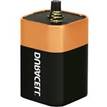 Dry-cell batteries do not contain liquid. Smaller dry-cell batteries, such as alkaline or lithium ion, are typically used in portable electronics, such as toys, phones and laptops. Dry-cell batteries do not contain liquid. Smaller dry-cell batteries, such as alkaline or lithium ion, are typically used in portable electronics, such as toys, phones and laptops. |
| Lithium Batteries |
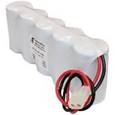  Lithium batteries have a much higher energy density than other batteries. lithium batteries are generally used for portable consumer electronics and, recently, for electric and hybrid power trains for different types of vehicles. Consumer applications such as mobile telephones, laptops and calculators, digital cameras and camcorders, portable radios and televisions, electric razors and toothbrushes, and medical and communications equipment. Lithium batteries have a much higher energy density than other batteries. lithium batteries are generally used for portable consumer electronics and, recently, for electric and hybrid power trains for different types of vehicles. Consumer applications such as mobile telephones, laptops and calculators, digital cameras and camcorders, portable radios and televisions, electric razors and toothbrushes, and medical and communications equipment. |
| Lithium-ion Batteries |
  Lithium ion batteries are used for powering many different items from small earbuds and earphones through to mobile phones, tablets, laptops and a host of other electronic gadgets and items. Cordless power tools make widespread use of li-ion batteries as do other electrical items. Lithium ion batteries are used for powering many different items from small earbuds and earphones through to mobile phones, tablets, laptops and a host of other electronic gadgets and items. Cordless power tools make widespread use of li-ion batteries as do other electrical items. |
| Lithium Polymer |
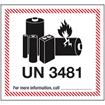 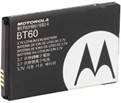 lithium-polymer (Li-poly) batteries, a suitable alternative for a wide variety of consumer electronic gadgets. lithium-polymer (Li-poly) batteries, a suitable alternative for a wide variety of consumer electronic gadgets. |
| Nickel-Cadmium Batteries |
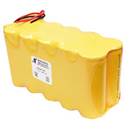 Nickel-cadmium (NiCd) batteries compete with lead-acid batteries because they have a higher energy density and have a longer life. They are good for uninterruptible power supply and generator-starting applications. Nickel-cadmium (NiCd) batteries compete with lead-acid batteries because they have a higher energy density and have a longer life. They are good for uninterruptible power supply and generator-starting applications. |
| Lead Acid Batteries |
 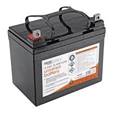 A typical lead–acid battery contains a mixture with varying concentrations of water and acid. A typical lead–acid battery contains a mixture with varying concentrations of water and acid. |
| Uninterrupted Power supplies (Personal & Network) |
 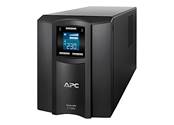 An uninterruptible power supply or uninterruptible power source (UPS) is an electrical apparatus that provides emergency power to a load when the input power source or mains power fails. An uninterruptible power supply or uninterruptible power source (UPS) is an electrical apparatus that provides emergency power to a load when the input power source or mains power fails. |
| Tool Batteries |
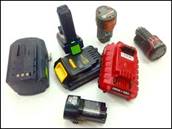 There are three different types of batteries which can be used by cordless drills, or any other kind of cordless tool: nickel-cadmium (NiCd), nickel-metal hydride (NiMH), and lithium-ion (Li-ion). There are three different types of batteries which can be used by cordless drills, or any other kind of cordless tool: nickel-cadmium (NiCd), nickel-metal hydride (NiMH), and lithium-ion (Li-ion). |
Where can I take batteries for special disposal?
| If the batteries are from your |
Dispose of them at |
| home |
Household Hazardous Waste dropoff at the Shady Grove Processing Facility and Transfer Station. Bring batteries from your home at no charge. We do not limit the number of batteries you may drop off.
Use the Call2Recycle drop-off locator to find participating retailers. Or call the nearest retailer to you. |
| business or organization (Small Quantity Generators only) |
Ecowise drop-off at the Shady Grove Processing Facility and Transfer Station; the Ecowise fee schedule applies. Or, use the Call2Recycle drop-off locator to find participating retailers. Or call the nearest retailer to you. |
Alternate battery drop-off locator
You may use the Call2Recycle drop-off locator to find other participating retailers. Or call the nearest retailer to you.
Transport batteries safely
The safest methods of transporting these batteries are to protect terminals by
- placing each battery individually into a plastic bag, or
- taping the ends with masking tape or another non-metallic tape.
When carrying small batteries in your pocket, do not mix them with coins and house keys.
Lead acid/vehicle batteries
We accept lead acid or vehicle batteries from residents at no charge at our Household Hazardous Waste dropoff at the Shady Grove Processing Facility and Transfer Station. For businesses and organizations, we accept batteries for a small fee thru the county Ecowise Program on Wednesdays from 1:00 pm to 5:00 pm also at the Shady Grove Processing Facility and Transfer Station near the Household Hazardous Waste drop-off location. Businesses and organizations can register using ECOWISE Online Application.